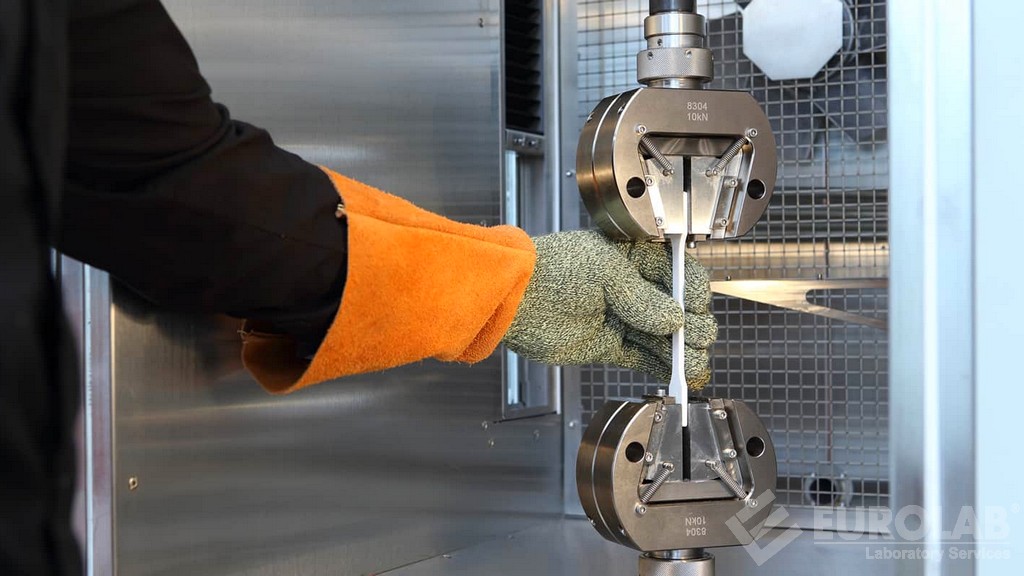Production Chemicals & Additives Testing
The testing of production chemicals and additives plays a pivotal role in ensuring optimal performance, safety, and efficiency within the oil and gas sector. These chemicals are used extensively to enhance various processes such as enhanced oil recovery (EOR), pipeline integrity management, corrosion control, and drilling fluid optimization. The quality and composition of these chemicals can significantly impact operational costs, environmental considerations, and overall production output.
Understanding the chemical properties is critical for effective performance in challenging environments. For instance, surfactants used in EOR must possess specific solubility characteristics to ensure they effectively dissolve hydrocarbons. Similarly, corrosion inhibitors need to have precise molecular structures that allow them to form protective films on metal surfaces under various temperature and pressure conditions.
In the context of oil production, additives like biocides are crucial for preventing microbial growth in reservoirs and pipelines, which can lead to reduced flow rates or blockages. The testing methods employed must therefore account for these operational conditions while adhering to strict standards such as ASTM D1293 for measuring viscosity.
The selection of appropriate analytical techniques is essential when evaluating production chemicals and additives. Chromatographic methods like High-Performance Liquid Chromatography (HPLC) are frequently used for their high resolution in separating complex mixtures, whereas Fourier Transform Infrared Spectroscopy (FTIR) provides detailed information about the molecular structure of compounds.
Another critical aspect is the evaluation of biodegradability and toxicity. These tests help determine whether a chemical poses risks to ecosystems or human health if accidentally released into the environment. ISO 14976 outlines specific protocols for assessing these properties, ensuring compliance with international environmental regulations.
The impact of production chemicals on equipment longevity cannot be overstated. Corrosion inhibitors, for example, not only protect against direct corrosion but also help mitigate secondary effects like pitting and crevice corrosion. Understanding how these additives interact with different materials under various operational conditions is vital for long-term reliability.
In summary, the testing of production chemicals and additives in oil and gas requires a comprehensive approach encompassing multiple analytical techniques tailored to specific operational needs. This ensures that only high-quality products are introduced into the field, thereby maximizing efficiency and minimizing risks associated with improper material choices.
Why It Matters
The importance of production chemicals and additives testing cannot be overstated in the oil and gas industry. Proper evaluation ensures that these substances meet stringent performance criteria necessary for safe and efficient operations. Failure to do so can result in significant operational disruptions, increased costs due to maintenance or replacement of equipment, and potential environmental hazards.
For instance, improper corrosion inhibitors may lead to premature degradation of metallic components within pipelines, resulting in expensive repairs or even leaks that could contaminate nearby water sources. Similarly, inadequate biocide treatments can foster microbial growth, causing blockages in wells and other critical infrastructure. Such issues not only increase operational downtime but also pose risks to public health.
From a regulatory standpoint, compliance with international standards such as ISO 14976 for biodegradability testing is mandatory. Non-compliance can result in penalties or bans on the use of certain chemicals, impacting business operations and profitability. Therefore, investing in thorough testing ensures not only adherence to legal requirements but also enhances trust among stakeholders.
Moreover, effective chemical management contributes positively towards sustainability goals by reducing waste generation and promoting resource efficiency. By choosing additives that are both effective and environmentally friendly, companies can contribute to a more sustainable future while maintaining competitive advantage.
Eurolab Advantages
At Eurolab, our commitment to excellence in production chemicals and additives testing is reflected in our state-of-the-art facilities equipped with advanced analytical instruments. Our team of experts employs cutting-edge methodologies rooted in international standards like ASTM D1293 for measuring viscosity.
We pride ourselves on providing precise results that are reliable and reproducible, which is crucial given the demanding nature of oil and gas operations. Our services extend beyond basic testing; we offer comprehensive consultancy to help clients optimize their chemical formulations further. This includes advice on selecting appropriate additives based on specific operational requirements.
One key advantage lies in our ability to conduct tests under simulated field conditions. This ensures that the chemicals tested perform consistently across different environments, reducing uncertainties related to variability in real-world applications. Additionally, Eurolab’s proficiency in handling diverse sample types—from complex hydrocarbon mixtures to biodegradable compounds—makes us uniquely capable of addressing a wide range of testing needs.
Our extensive network allows for seamless integration with global supply chains, facilitating quicker turnaround times and better coordination between suppliers, manufacturers, and end-users. Furthermore, our transparent communication style ensures clients are kept informed every step of the way, fostering trust and confidence in our services.
Use Cases and Application Examples
Production chemicals and additives testing finds application across numerous aspects of oil and gas operations. One prominent example is enhanced oil recovery (EOR), where surfactants play a crucial role in dissolving hydrocarbons from reservoirs. The success of EOR heavily depends on the surfactant’s solubility, which can vary based on factors such as temperature and pressure.
Another critical area is corrosion control within pipelines. In this context, testing focuses on identifying suitable inhibitors that form protective layers over metal surfaces without compromising pipeline integrity. This involves evaluating factors like inhibitor concentration, application method, and interaction with other chemicals present in the system.
The use of biocides also requires meticulous evaluation to ensure they effectively combat microbial growth while remaining safe for both personnel handling them and the environment. Testing includes assessing efficacy against specific pathogens alongside biodegradability studies to minimize ecological impact upon disposal.
Drilling fluids are yet another focus area where testing ensures optimal performance under extreme conditions. This encompasses evaluating rheological properties, fluid loss control agents, and other additives that contribute to safe drilling operations while minimizing environmental footprint.





